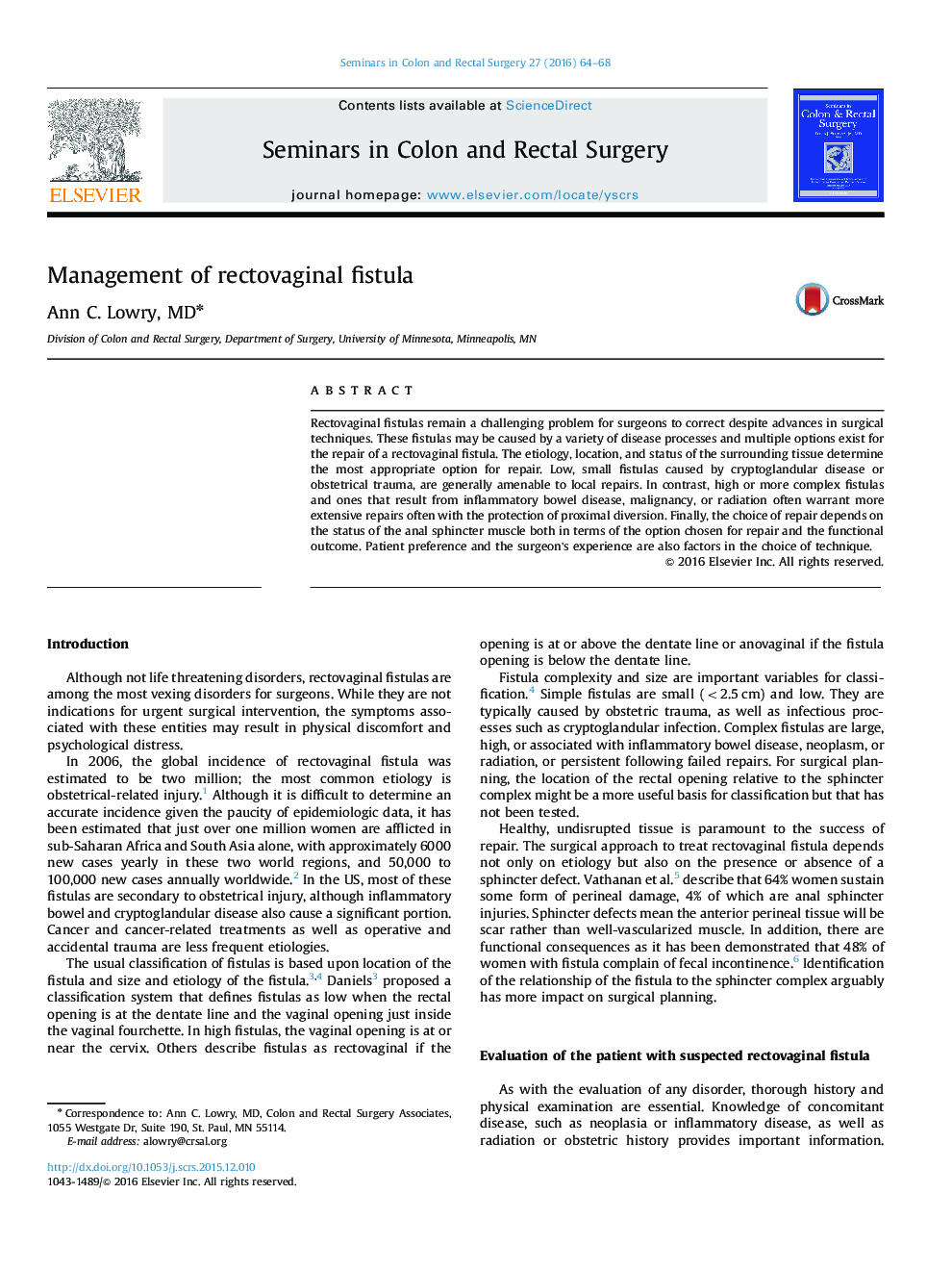| Article ID | Journal | Published Year | Pages | File Type |
|---|---|---|---|---|
| 3319225 | Seminars in Colon and Rectal Surgery | 2016 | 5 Pages |
Abstract
Rectovaginal fistulas remain a challenging problem for surgeons to correct despite advances in surgical techniques. These fistulas may be caused by a variety of disease processes and multiple options exist for the repair of a rectovaginal fistula. The etiology, location, and status of the surrounding tissue determine the most appropriate option for repair. Low, small fistulas caused by cryptoglandular disease or obstetrical trauma, are generally amenable to local repairs. In contrast, high or more complex fistulas and ones that result from inflammatory bowel disease, malignancy, or radiation often warrant more extensive repairs often with the protection of proximal diversion. Finally, the choice of repair depends on the status of the anal sphincter muscle both in terms of the option chosen for repair and the functional outcome. Patient preference and the surgeon׳s experience are also factors in the choice of technique.
Related Topics
Health Sciences
Medicine and Dentistry
Gastroenterology
Authors
Ann C. MD,
